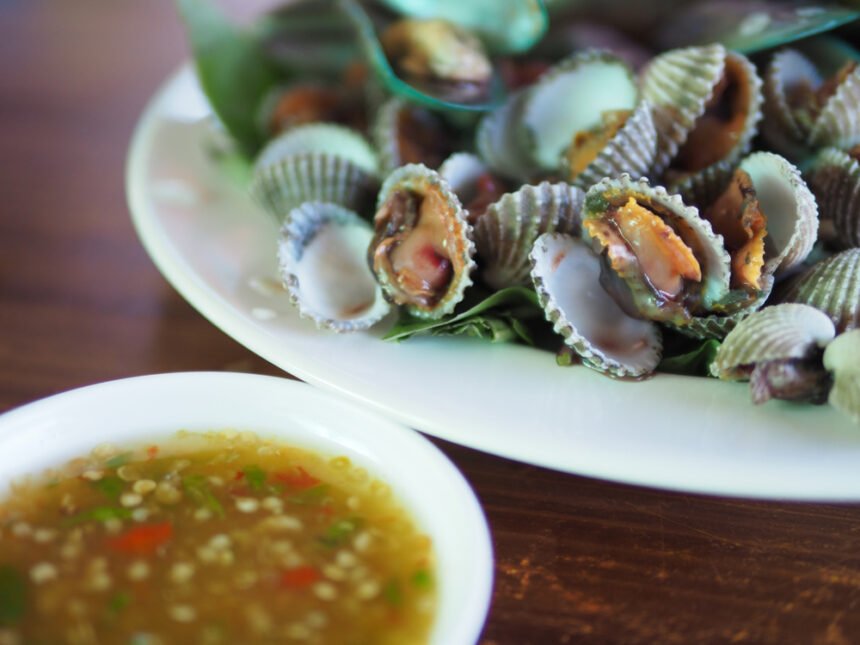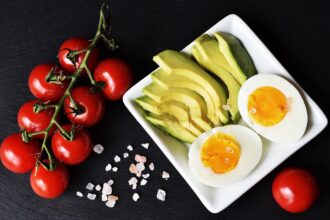Why should you maintain healthy iodine levels? For starters, your body uses the mineral to make thyroid hormones, which play a role in everything from metabolism to brain and muscle function. Without iodine, not only are these functions impaired, but the thyroid gland at the base of your neck also enlarges to compensate, requiring surgery. And if you are an expectant woman, the consequences of a deficiency are more severe. As the mineral is responsible for proper embryo development, a shortage leaves your child with stunted growth, intellectual disability, and deafness. On the other hand, too much iodine also has adverse consequences, for it leads to lethargy, muscle atrophy, and obesity. Obviously, maintaining healthy iodine levels is in your best interests, and here?s how to do so.
#1: Table Salt
Before the 1920s, goiter – a symptom of iodine deficiency – was commonplace around the world. To stop this menace, governments came up with a novel solution in the early 1920s. They convinced salt manufacturers to add iodine to table salt. This way, people could consume the trace mineral as part of their food. Since then, iodized salt has remained the most accessible source of iodine. From a half tablespoon, you get all the mineral you need for the day. Unfortunately, this is still too much salt if you suffer from high blood pressure. This then leaves you no choice but to lower your salt intake and to make up for the deficiency through diet and supplements.
#2: Milk and Milk Products
Milk, yogurt, and cheese are great sources of iodine. However, different brands contain varying amounts of the minerals, depending on the type of animal feed and the milking disinfectant used. With that said, a cup of milk gives you nearly, all, or more than the iodine you need in a day. In contrast, a similar amount of yogurt gives you about half or less. Interestingly enough, a cup of cheese exhibits the greatest diversity as far as mineral content goes. While some varieties like cottage cheese contain about 40 percent of your recommended daily intake, others like cheddar cheese contain only 8 percent. For this reason, carefully read the labels on dairy products to know how much iodine they hold.
#3: Saltwater Fish
Although fish, in general, contain iodine, saltwater species have the greatest content. And two such species stand out – cod and tuna. Known for its pale color, tender texture, and subtle flavor, cod is so packed with minerals that just six ounces contain more than your recommended daily intake of iodine. Its secret is a low fat-to-weight ratio. Being a fatter fish, tuna also contains iodine, though not as much as cod. For this reason, six ounces contain only a fifth of the iodine you need. Note, however, that the mineral content in fish species varies, depending on where the fish come from and how they were reared. As you?d expect, those caught in the wild contain more iodine.
#4: Kelp
Kelp, or seaweed, is nature?s greatest source of iodine. Take the Kombu species, for instance. A gram of this brown Asian kelp contains up to 20 times the recommended daily intake. In fact, this species is the most iodine-rich of all the seaweed varieties. And as a result, limit how much of it you take, lest you disrupt how your thyroid gland works. Next, you have the Wakame, another brown Asian variety known for its mildly sugary taste. Although it contains iodine, its content cannot match that of the Kombu. A gram only contains about half of the iodine you need in a day. The last common kelp species is the Nori, unique for its reddish color and low iodine content. A gram of it contains 10-30 percent of the recommended daily intake.
#5: Supplements
Despite being on a healthy diet, you are still susceptible to an iodine deficiency. For instance, you could be hypertensive or sensitive to sodium, forcing you to limit your intake of iodized salt. Or, being a vegan or vegetarian, you avoid eating dairy products or saltwater fish. Or, maybe you cannot access or afford seaweed. And if the above does not apply to you, halogens found in processed products strip iodine from your body. One is bromine, a chemical added to baked products, which often hinders iodine absorption if consumed in large amounts. Others include the fluoride in toothpaste and the chlorine in treated water. Finally, engaging in sports or working in a hot environment causes you to sweat profusely and to lose iodine. In all the above cases, you need iodine supplements, which, fortunately, come with extra benefits. According to Dr. Todd Watts from Microbeformulas.com, iodine increases energy and removes toxins. Despite its adverse consequences, an iodine deficiency is easily stopped by eating the right foods and by taking iodine supplements. However, these two measures are in vain if you continue ingesting iodine-stripping halides like bromine. As a result, reduce your intake of commercially baked products, which contain this halide in particular.









